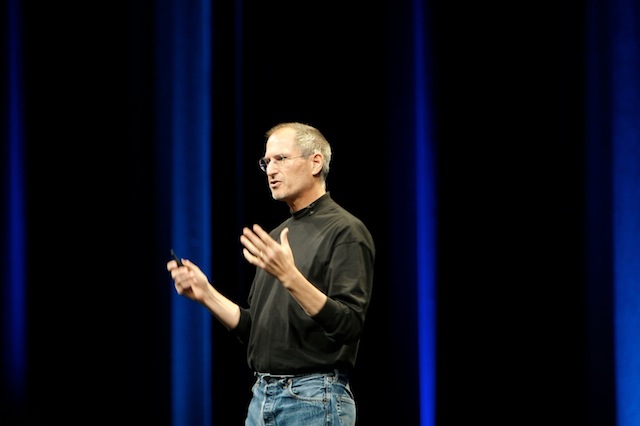Wired Magazine asks is Steve Jobs’ story a cautionary or inspirational tale for entrepreneurs and managers.
It’s always worrying when any one individual is cited as being the role model for business leaders – over the years we’ve seen Jack Welsh, Warren Buffet, Bill Gates and dozens of others lauded as being the perfect CEO.
None has probably lauded more than Steve Jobs, in many ways rightly so given the way he way he steered his business back from disaster and by the time of his death had made Apple the leader in a range of technologies that barely existed a decade earlier.
Despite Steve Jobs’ successes there’s no doubt he was a very difficult man – the stories of his bullying and striking fear into Apple’s staff are legendary and no-one has chosen to contradict them. For many people, he was impossible to work with.
George Bernard Shaw once wrote “the reasonable man adapts himself to the world; the unreasonable one persists in trying to adapt the world to himself. Therefore all progress depends on the unreasonable man.”
No-one would have ever claimed Steve Jobs was a reasonable man.
Steve Jobs was unique – as is Apple, Microsoft, IBM, News Limited, Nestle, Joe’s Pizza Bar and the local plumbing supply shop. Every business is unique and different in it’s own way
For some of those businesses, a manager being an unreasonable asshole like Steve Jobs could be a recipe for success although disaster is probably more likely.
Disaster was the result for most manager and businesses in the 1990s who blindly copied the then eulogized Jack Welsh’s Six Sigma strategies or “Chainsaw Al” Dunlap’s slash and burn philosophies without appreciating the subtle differences between their organisations and GE or Scott Paper.
In business – as in life – there’s no “right way” or “wrong way” and thinking in a “yes” or “no” mindset, doesn’t work in a nuanced, complex world.
The Wired article on Steve Jobs itself falls into this binary thinking in asking readers if they are an “acolyte” or “rejector” of Steve Jobs’ methods. In reality, few people would totally reject every aspect of Jobs’ behaviour but few of us would be capable of totally imitating his behaviour.
Perversely, aping Steve Jobs is probably a career limiting move for managers. As Adam Hartung writes in Forbes Magazine, Steve Jobs couldn’t find a job today and someone with his quest for perfection would struggle with the bureaucracy of a corporation or government agency.
Like our businesses, each of us is unique and here’s a bit of Steve Jobs in all of us – at the same time most of us would also be repelled by many of Steve Jobs’ characteristics.
Simply copying someone else is neglecting our own strengths and acquiring someone else’s weaknesses. Surely it makes more sense to work to our abilities.

Leave a Reply